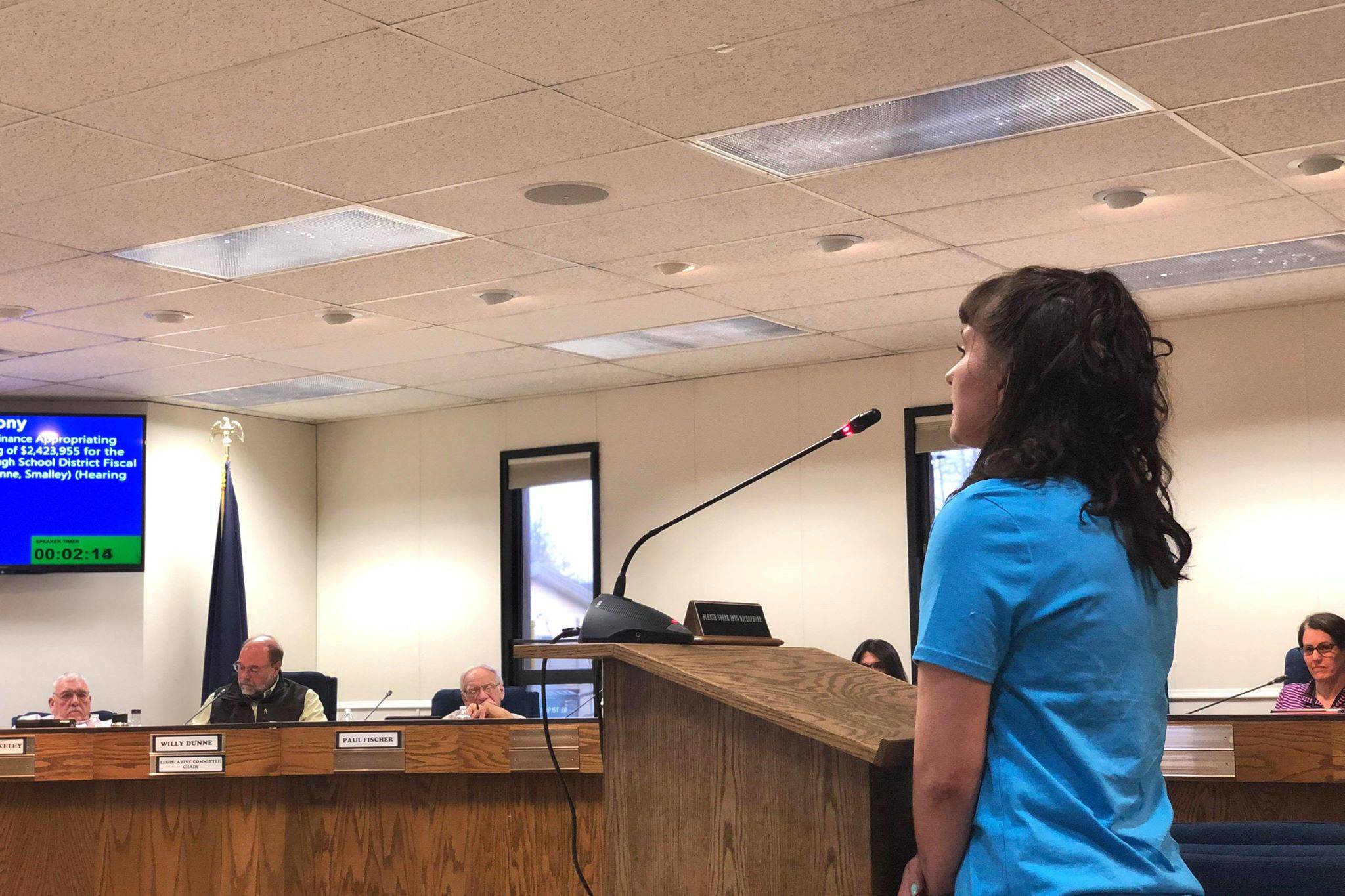Facing potential state, local and district budget reductions, many non-tenured teachers are considering employment elsewhere.
At Monday’s Kenai Peninsula Borough School District Board of Education meeting, James Harris, an English teacher at Soldotna High School and the 2017 Alaska Teacher of the Year, offered public comment regarding his recent resignation.
Harris said he felt he didn’t really have a choice.
“With the mayor’s proposed cuts and the governor’s proposed cuts, we would be hurting and we would lose our home,” Harris said. “On top of that, there has been seemingly very little support from the community.”
Harris has been teaching in Alaska for 13 years, starting his career as a professor at the University of Alaska Fairbanks. He’s been with the district for nine years.
“I’ve really grown in this district,” Harris said.
He said morale among teachers has been poor for a while, especially among tier-three teachers, who have the least desirable retirement plan.
“It would be very difficult to retire with dignity,” Harris said. “I think I’ve waited and hoped that our leadership would get their act together on presenting opportunities for teachers because we have a huge recruitment and retainment issue for teachers.”
Despite the state’s fiscal situation, Harris said he is incredibly thankful for his time in the school district.
“The board, the superintendent, my principal and colleagues are amazing, but the students have really changed my world,” Harris said. “They taught me more than I taught them.”
Harris and his family have plans to move to Washington state later this year, where his wife has already accepted a position.
An ordinance that could help retain some of the district’s non-tenured teachers was introduced at Tuesday’s Kenai Peninsula Borough Assembly meeting. The assembly took public comment on the ordinance.
The ordinance would appropriate $2,423,955 for the school district’s fiscal year 2019 budget. After the joint assembly and school board meeting on March 5, Superintendent Sean Dusek submitted a letter to the assembly asking to fund the school district for 2019. The maximum amount allowable at this time is $2,423,955.
“During that work session the school district provided information supporting its need for maximum funding from the borough for the FY 2019 budget based on proposals to significantly reduce state funding for education in both FY 2019 and FY 2020, as well as other state cuts in funding,” according to a memo from assembly members Willy Dunne and Hal Smalley, the ordinance sponsors.
The memo says the additional funding would allow the school district to retain some non-tenured staff for the 2020 school year, and to also potentially provide a cushion to other potential state funding reductions.
“There are many reasons to provide this, but one of the main reasons would be to retain some of the non-tenured staff,” Dunne said at the meeting. “It’s really unfortunate that we have to go through this on an annual basis — giving pink slips to non-tenured staff with the hopes that we will be able to hire them again in the following fiscal year.”
Dunne said if state funding is reduced, the borough may not be able to fund to the same cap next fiscal year. He said this supplemental funding can provide some breathing room, or a cushion for the school district if more cuts come in the future.
Dave Brighton, president of the Kenai Peninsula Education Association, said he doesn’t see the $2.4 million as a cushion for the district.
“Right now we’ve got roughly 120 teachers that are spending their evening looking through the internet looking for other jobs,” Brighton said at the meeting. “They are looking to leave the state. Many of them have thought about this for years because this state has the worst retirement system for teachers in the nation. The Dunleavy budget was the straw that broke the camel’s back.”
Brighton said he and his wife have discussed putting their house on the market.
“Truthfully, I’m a special-ed teacher and my job isn’t really at risk,” Brighton said. “But I have to ask myself, ‘do we want to live in a state that would cut roughly 25 percent of the education budget?’”
A first-year teacher at Chapman School in Anchor Point, Malia Larson, said she would love to know if she has a job next year.
“I want to be there for these kids and I want to know that my job is secure,” Larson said at the meeting. “I love being on the Kenai Peninsula. I hope this ordinance passes so that I might have security for next year.”
Carl Kircher, principal of Mountain View Elementary in Kenai, told the assembly that passing the ordinance would send a positive message to the community.
“People are in shock,” Kircher said at the meeting. “People don’t know what they’re going to do or what their next move is. I think it’s time for this body to take action. It’s time to send a positive message to this community about what’s important, a positive message to businesses that might want to relocate here. Send a positive message to employees that might want to move here, and a positive message to our non-tenured teachers.”
The assembly will have another public hearing on the ordinance at their next meeting, on Tuesday, April 16 in Seward.

